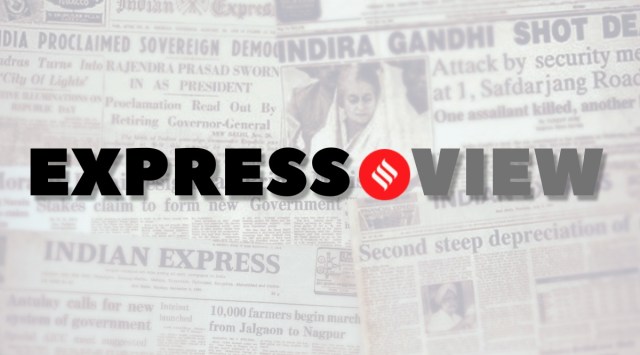
In an important and consequential verdict on Thursday that could help resolve the recurring impasse caused by the ungainly friction between the Lieutenant Governor and the elected government in Delhi, the Supreme Court has underlined the primacy of the NCT’s elected representatives in its governance, and upheld the principle of federalism. A five-judge Constitution Bench headed by Chief Justice DY Chandrachud ruled that the bureaucrats in charge of the NCT’s administration have to report to Delhi’s council of ministers, except in matters related to policing, public order and land. The Centre had argued that it — and its representative, the lieutenant governor — needed “the power to make transfers and posting of officers in Delhi on account of it being the national capital” and the “face of nation”. But CJI Chandrachud rightly pointed out, “If a democratically elected government is not given the power to control the officers, the principle of accountability will be redundant. If the officers stop reporting to the ministers or do not abide by their directions, the principle of collective responsibility is affected.” The unanimous verdict should bring a closure to the tussle between the L-G and the Arvind Kejriwal government which has all too often thrown a spanner in the works of the Delhi administration.
In 2018, a five-judge Constitution bench had unanimously ruled that the “Delhi L-G was bound by the aid and advice of the elected government, and both needed to work harmoniously with each other”, even as it did not touch upon the specific issue of control over the bureaucracy. That verdict played a role in enabling Delhi’s AAP government to translate its welfarist commitments into policies — from mechanisation of the sewage system to free bus rides to women. While the NCT government and the L-G have locked horns several times since 2015 when the AAP came to office with a full majority, they seemed to have developed a working relationship during the better part of the pandemic. But the relationship was seen to deteriorate after the appointment, last year, of former Khadi and Village Industries Commission chairperson V K Saxena as Delhi’s L-G. The Delhi government has pointed to L-G Saxena transgressing his constitutional powers by issuing orders directly to officials, without the concurrence of ministers, while Saxena maintained that he was well within his rights to do so.